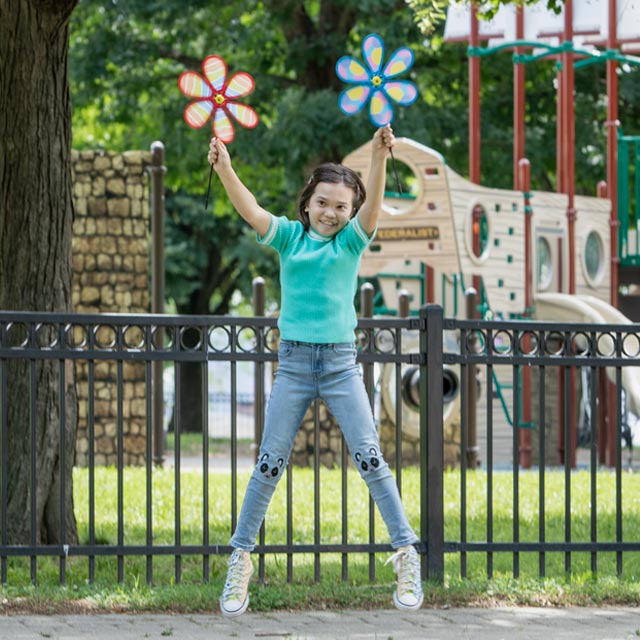
We vaccinate our children because we do not want them to get sick from a potentially serious vaccine-preventable disease. But you may be wondering, if we're trying to protect children, why do we use vaccines that might give them a fever?
The answer is that, sometimes, vaccines can cause routine, mild side effects that go away in a few days, such as a low fever. Not everyone will get side effects. Side effects can be a sign that the immune system is working with the vaccine to create protection against disease.source: 1,source: 2
Key Evidence
- Fevers are normal and expected. Fever is one of the most common side effects of vaccination. How common fever is depends on the vaccine but anywhere from 1–30% of children will get a fever after being vaccinated.source: 1,source: 3
- Fevers can be beneficial. A fever is a normal part of the immune system doing its job. A fever can be beneficial because it speeds up the immune system’s work.source: 2,source: 4 Check with your child’s doctor about giving fever-reducing medicine.source: 1
- Fevers will usually go away on their own within a few days.source: 4,source: 5 Most common side effects are mild and go away without treatment.source: 2,source: 4

A Deeper Dive: High fevers and febrile seizures
Certain vaccines can cause higher fevers and, rarely, seizures caused by fever, called febrile seizures. These vaccines include:source: 6
- DTaP vaccine (diphtheria, tetanus, and pertussis)
- PCV (pneumococcal conjugate vaccine) and inactivated flu vaccine if given together
High fevers and febrile seizures can be frightening for parents, but they are not usually dangerous and do not cause lasting health issues or disorders.source: 7,source: 8 Febrile seizures, while uncommon, can happen after vaccination.source: 6 Febrile seizures happen most often in children from 6 months to 5 years old, and they can run in families.source: 6,source: 9 Viral illnesses, ear infections, and rarely, some vaccines can cause febrile seizures if a child has a high fever.source: 6 These types of seizures happen when a fever causes too many brain cells to get excited at the same time. Most febrile seizures last a minute or two but in rare cases can last more than 15 minutes.source: 6,source: 9 Febrile seizures usually stop by themselves, unless they last longer than 10 minutes.source: 9,source: 10
About 1 in 25 children will have a febrile seizure because of illness, but only about 3 in 10,000 children will have a febrile seizure due to a vaccine.source: 6,source: 10 Making sure children are up to date on recommended vaccines may prevent febrile seizures from diseases like chickenpox, influenza, measles, mumps, pneumococcal infections, and rubella.source: 6
More information
- Mayo Clinic: Febrile seizure - Symptoms & causes
- Institute for Vaccine Safety: Do Vaccines Cause Seizures?
Still have questions? Talk to your child's doctor, nurse, or pharmacist.
Sources
- Children's Hospital of Philadelphia: Fever and Vaccines
- HHS: Vaccine Side Effects
- FDA: Vaccines Licensed for Use in the United States
- Seattle Children's Hospital, Foundation, and Research: Immunization reactions
- CDC: Possible Side Effects from Vaccines
- CDC: Febrile Seizures and Childhood Vaccines
- Mayo Clinic: Febrile seizure
- CDC: Febrile Seizures Following Childhood Vaccinations, Including Influenza Vaccination
- MedlinePlus: Febrile Seizures
- Journal of Neurology & Neurophysiology: Recent Research on Febrile Seizures: A Review
Disclaimer Policy: Links with this icon () mean that you are leaving the HHS website.
Disclaimer Policy: Links with this icon () mean that you are leaving the HHS website.
- The Department of Health and Human Services (HHS) cannot guarantee the accuracy of a non-federal website.
- Linking to a non-federal website does not mean that HHS or its employees endorse the sponsors, information, or products presented on the website. HHS links outside of itself to provide you with further information.
- You will be bound by the destination website's privacy policy and/or terms of service when you follow the link.
- HHS is not responsible for Section 508 compliance (accessibility) on private websites.
- For more information on HHS's web notification policies, see Website Disclaimers.
